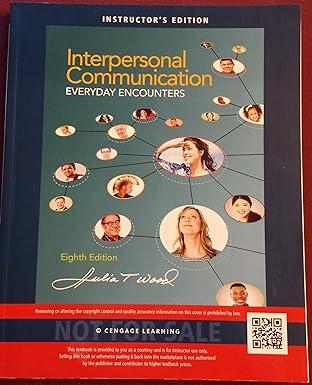Test the research cited above by asking friends to give you a true description of something and
Question:
Test the research cited above by asking friends to give you a true description of something and a false one.
Describe how detailed stories are when they are truthful and when they are not.
Police Have New Tool for Detecting Lies Lie detector tests base judgments of honesty on vocal pitch and rhythm, which the test assumes differ when people lie and when they tell the truth. But lie detector tests have not proven particularly reliable. Now law enforcement has a new tool for detecting deception: the detail in stories told by people being interrogated. New research indicates that when people lie, they develop a tight, bare-bones script and stick with it (Coldwell, Hiscock-Anisman, Memon, Colwell, Taylor, & Woods, 2009).
They do not include details and comments on context because that just adds to what they have to remember. In contrast, when we tell a truthful story, we include 20% to 30% more detail (Carey, 2009). People who are giving honest accounts do not have a script. They also tend to recall details about context—what was happening at the time of the event, who was present—that are extraneous to the main story. The researchers explain that “if you’re telling the truth, this mental reinstatement of contexts triggers more and more external details”
(Carey, p. D4). In the summer of 2009 the researchers began training techniques for conducting and judging interrogations to San Diego Police.
Step by Step Answer:

Interpersonal Communication Everyday Encounters
ISBN: 9781285445830
8th Edition
Authors: Julia T. Wood






